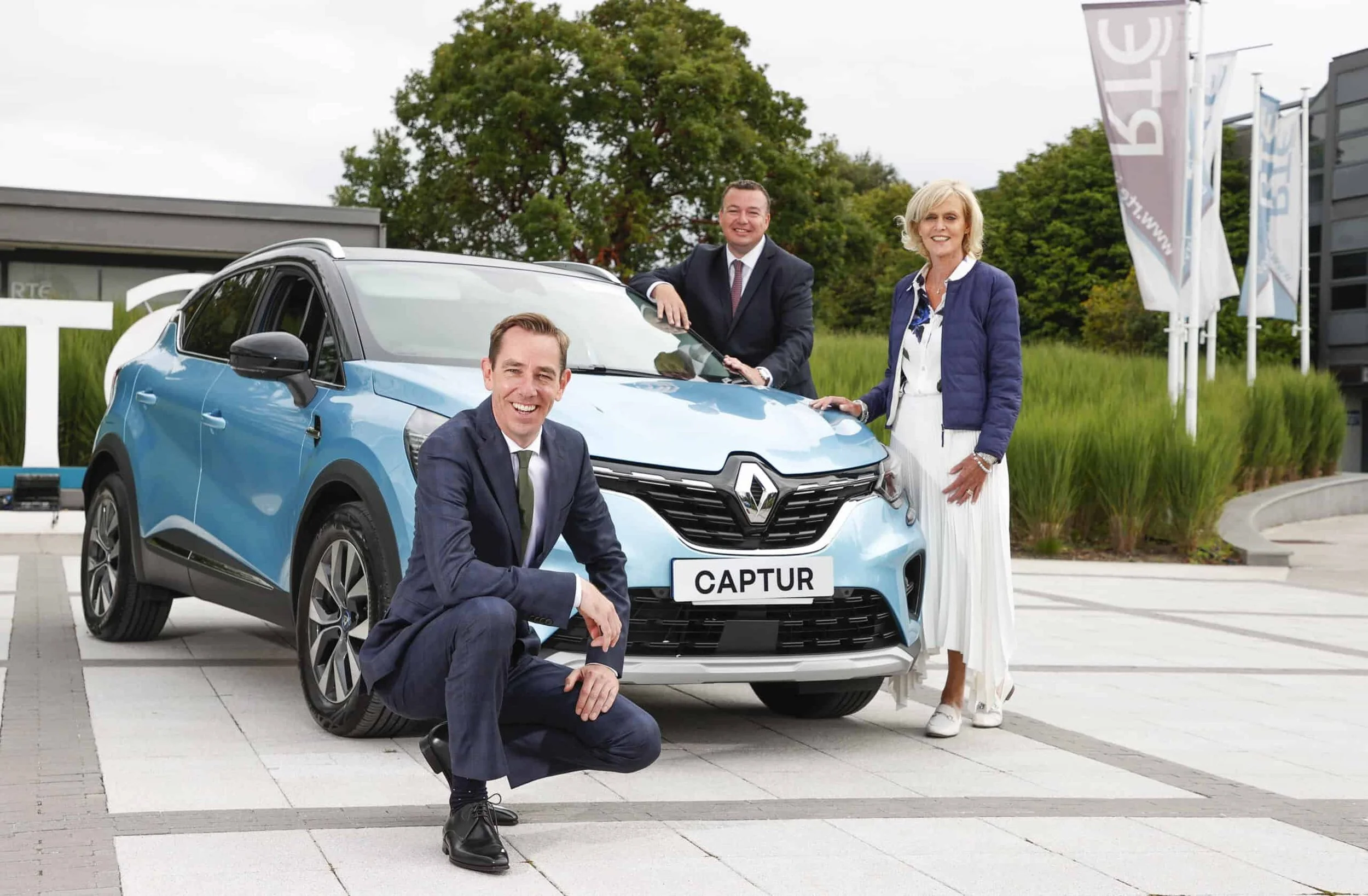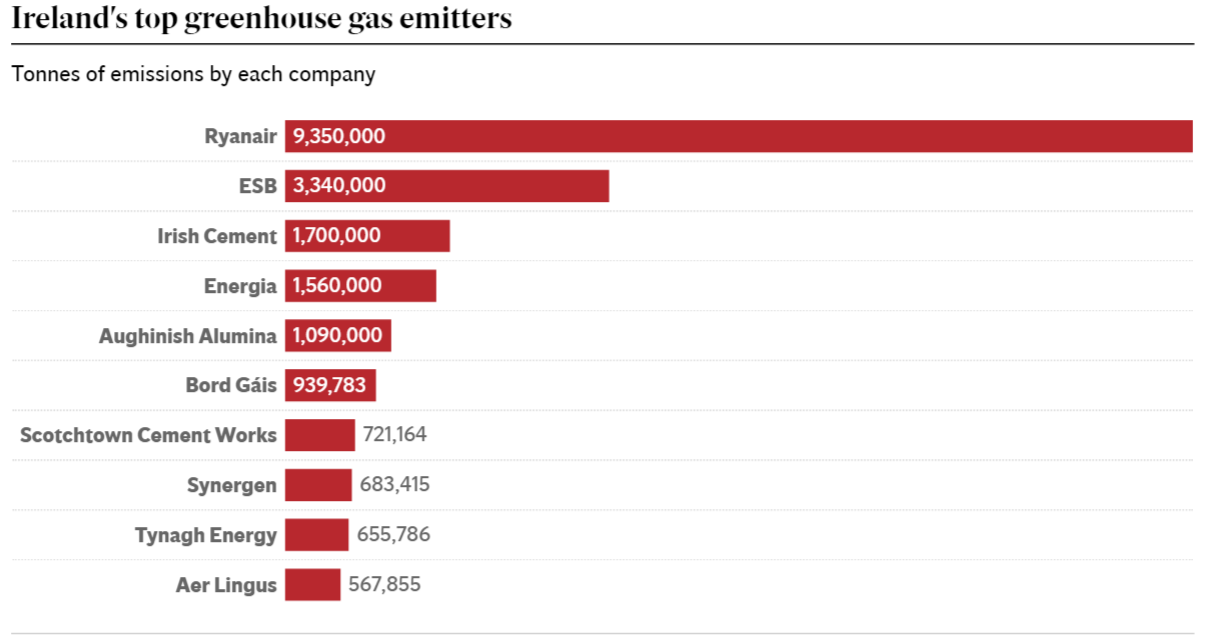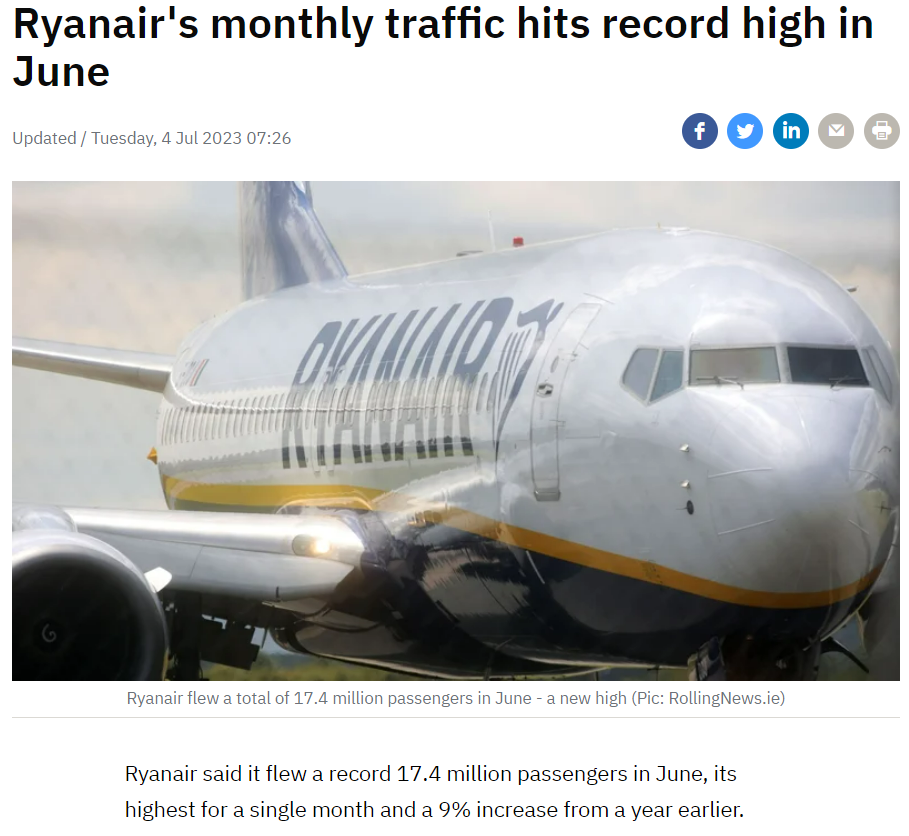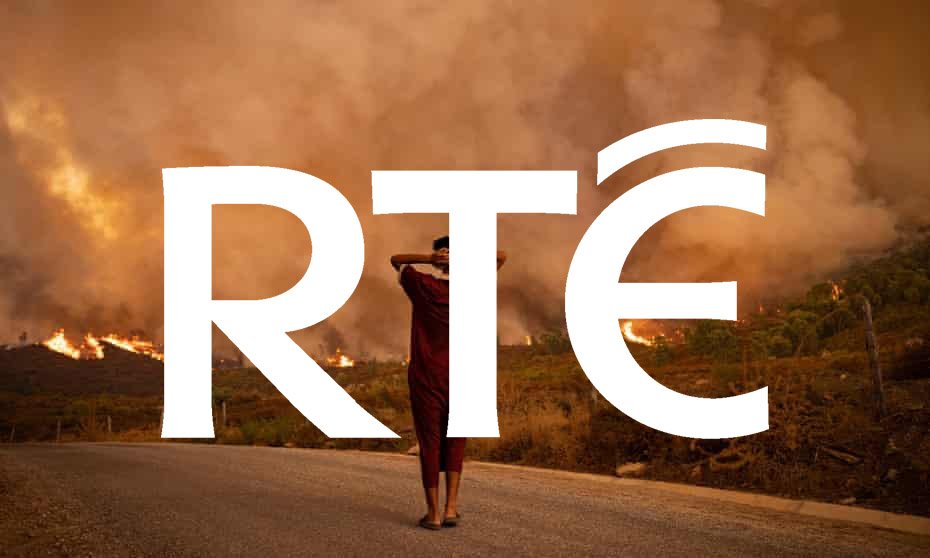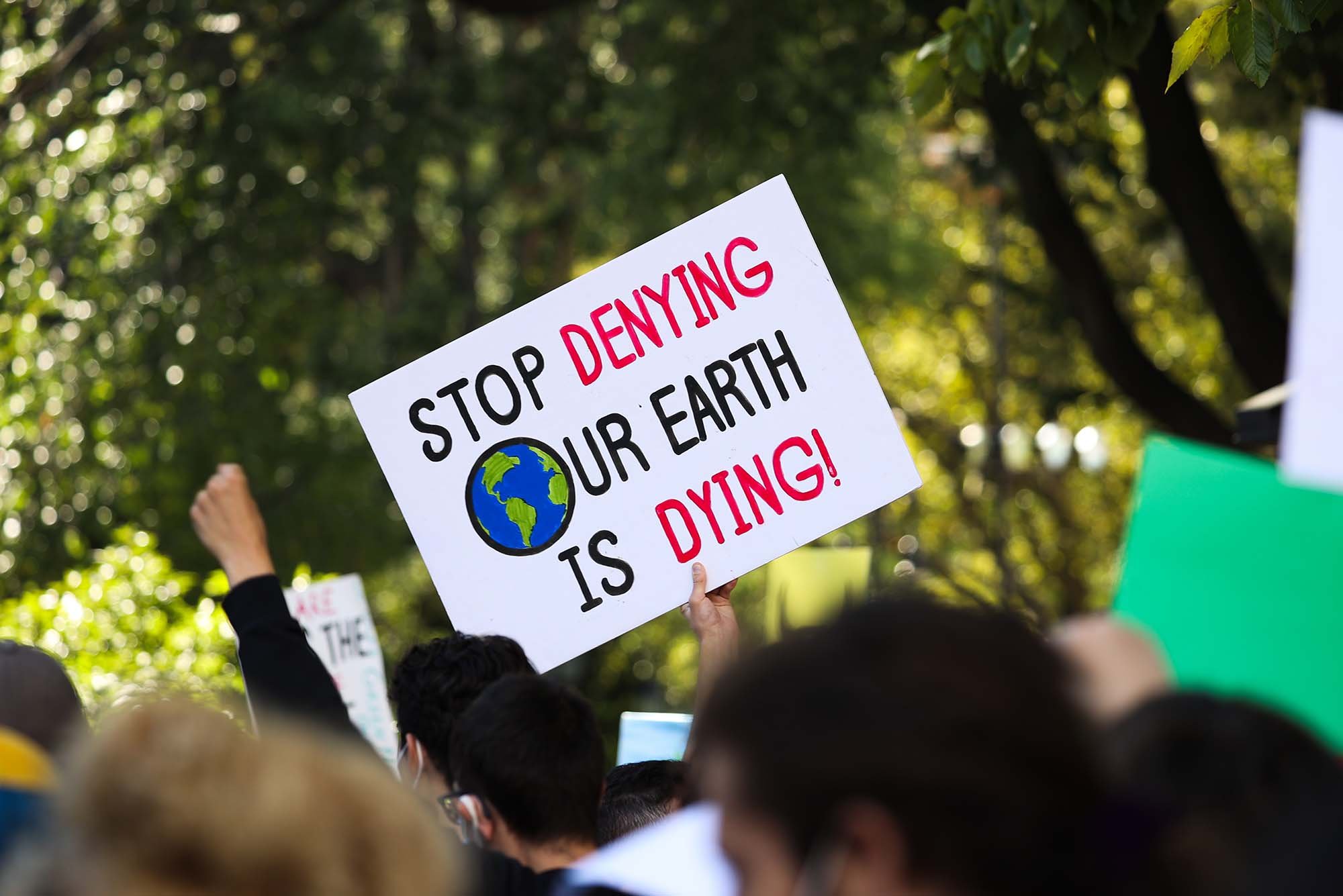
RTÉ’s Vested Financial Interests Compound Climate Coverage Failures
It has been a hell of a fortnight for RTÉ, as revelation after revelation has emerged about the national broadcasters’ inner workings, shady payment deals and utter lack of transparency.
‘RTÉ-gate’ – as it has been dubbed – may have started with the scandal around Ryan Tubridy’s pay, but it has rapidly evolved into a bigger issue that shows just how prominent corruption is within the organisation.
While much focus has rightly been placed on the financial side of this story, the impact for the Climate Emergency has been sorely overlooked, and provides an insight into why RTÉ has become such a bastion of climate misinformation and disinformation.
RTÉ – The New Car Lobby
While we often write about cars, we try our best to only talk about them in the context of the Climate Crisis. This includes acknowledging that electric cars are in no way a silver bullet, and their sustainability credentials are nothing compared to public transport and active travel.
If Big Tobacco was the most destructive industry of the 20th Century, then it can well be said that Big Automotive is the most malevolent force in the 21st Century in terms of its impact on the Climate Crisis, public policy and public safety.
Which is why it has been such a bone of contention for so long that almost every radio show, and many TV shows, that RTÉ broadcasts is affiliated with a car brand.
SUVs accounted for the second-highest increase in greenhouse gas emissions between 2010-2018. While the buck ultimately stops with the manufacturers for pushing them on us, the media has played a vital role in promoting them too. Credit: RTE.
To what extend can you trust a show to be transparent and honest in its reporting on the Climate Crisis – or any topic – when it is also seeking to support and protect the vested interest of its sponsors?
When we’ve been invited to appear on RTÉ radio and TV, the producers were always extremely careful to tell us not to mention brand names. It was always implied that this was for legal reasons, but now it seems as likely that this was to avoid compromising brand deals for the broadcaster and its talent.
Days after the scandal over Tubridy’s pay broke, Lottie Ryan used the RTÉ car park to film a promotional video for Toyota – part of her personal brand deal with the company. A company that, it should be noted, is a world-leader in greenwashing and climate misinformation.
While Ryan was later asked to delete the video from her Instagram by RTÉ, it demonstrates the immense blurring of the lines at the organisation, where the vested interests of sponsors are inherently tied up with the financial gain of presenters – and even the broadcaster itself.
In 2022, RTÉ paid over €47,000 for Ryan Tubridy to host a series events for Renault – the headline sponsor of the Late Late Show, which partnered the show for more than eight years. The manufacturer also struck a deal to pay Mr Tubridy €75,000 a year.
Renault paid to sponsor the Late Late Show to reach around 570,000 viewers each week – according to RTÉ’s own figures. This was a powerful platform that Renault used to sell highly polluting SUVs, and to promote baseless greenwashing claims about the supposed benefits of hybrid vehicles.
They were even presented with opportunities for additional PR through the Late Late Show – the gifting of €5,000 to Kathy Shrine in 2016 to support the conversion of her brother’s van for his accessibility requirements being an ideal example.
Brand deals for RTE stars and the broadcaster alike raise serious ethical and trust questions - as well as alarm bells of RTE’s impartiality in reporting on the Climate Crisis. Credit: Independent.ie/Twitter
How Can RTÉ Be Trusted?
It is through these partnerships that brands are able to manipulate public opinion not only of the brand itself, but the products that they offer.
The buck doesn’t stop with Renault. We only need to look to the relatively recent past to see that RTÉ struck a deal with Coca-Cola – the world’s biggest plastic polluter – for its coverage of the United Rugby Championship and the Big Big Movie.
While only 43% of the broadcaster’s revenue comes from commercial deals and advertising, these brands clearly have an enormous sway in the running of the organisation and their needs appear to eclipse those of the public who provide the majority of RTÉ’s funding.
This is particularly troubling when RTÉ seemingly has no ethical standards about who it will form a partnership with, with many excessive polluters on its books.
The question remains: How can RTÉ or its talent be trusted to report accurately on the Climate Crisis when its paymasters are focused on selling highly polluting petrol, diesel and hybrid cars?
The vested interest is painfully clear, and car manufacturers would not pay for the affiliation were they not getting something highly beneficial in return.
Sky-High Emissions
Nowhere is RTÉ’s failure on the Climate Crisis more obvious than its relationship with the aviation industry.
In April RTÉ’s 2FM ran a competition to promote Shannon Airport, offering 32 free flights over seven days, just a matter of weeks after the publication of the IPCC AR6 Synthesis Report – the “survival guide for humanity” in the face of the “ticking climate time-bomb”.
When IrishEVs asked how RTÉ could justify promoting airline use in the midst of the Climate Crisis, their PR team replied with the usual meaningless bullshit lines that are designed to avoid accountability: “RTÉ continues to demonstrate its commitment to becoming a more energy efficient organisation…”
They still seem to think that cutting the amount of energy they use or the amount of documents printed in the office is enough in the face of the Climate Emergency.
This is evident in their coverage of the Climate Crisis, which is tucked away in a little niche, and not applied to all relevant stories.
Nowhere is this more telling than in their coverage of Ryanair.
You may have read our previous articles where we tried to put our concerns about RTÉ’s climate coverage failures to the broadcaster’s new Managing Director of News & Current Affairs, only to be blocked by their PR team.
In 2023 alone, RTÉ has run 27 articles about Ryanair. Half of them talk in glowing terms specifically about the airline’s expansion and growth, with only four of them mentioning the term ‘emissions’ in any capacity – all of which pertain to greenwashing about so-called ‘sustainable’ aviation fuels.
These fuels are anything but sustainable, and will not only maintain emissions but are also highly likely to jeopardise food stocks.
Ryanair is the single biggest greenhouse gas emitter in Ireland - emitting more greenhouse gases in a single year than many countries do in the Global South. Not that you’d know it from RTE’s praise-filled coverage. Credit: Independent.ie
None of RTÉ’s articles about Ryanair – the biggest polluter in Ireland – this year have contained any useful information to educate the public about the role that aviation plays in worsening the Climate Crisis.
This is in spite of the fact that Ryanair was once again declared Ireland’s biggest greenhouse gas emitter by some margin, producing 9.35 million tonnes of CO2e each year. That’s more than ESB, Irish Cement, Energia, Bord Gais, Tynagh Energy and Aer Lingus combined.
In short, Ryanair produces more greenhouse gases than six of the top 10 biggest emitters in the country combined. It is more the annual emissions of 750,000 Irish residents combined, and larger than whole countries in the Global South.
Yet RTÉ cannot be bothered to educate the public about this, instead focusing on cosying up to a major emitter.
This is an abject failure by the national broadcaster.
As is the fact that many of their articles about the airline are more than 60% identical to the press releases issued by Ryanair. Whole paragraph structures, statements and ‘facts’ are taken wholesale from press releases that are designed to promote the brand.
That isn’t journalism; its PR.
When we asked RTÉ’s PR team why they provide such vociferous free promotion to Ireland’s biggest polluter, and why their stories are so strikingly similar to Ryanair’s press releases, they stated: “RTÉ does not publish press releases from major aviation polluters verbatim. RTÉ publishes stories based on news relevance on a case-by-case basis”.
Plainly this isn’t true on either front.
Their stories are often word-for-word copies of press releases, and quite what the news relevance of ‘Ryanair’s monthly traffic hits record high in June’ – without the context of the climate and health impact – is beyond us.
For more on this issue, see our article on how media syndication supports climate misinformation.
Is this article - comprised solely of information taken from a Ryanair press release - “news relevant”? Credit: RTE
National Broadcaster
RTÉ aspires to be seen alongside the likes of the BBC – a public service that benefits the people of Ireland and offers them high quality news and entertainment. A cultural icon.
But it is so far from the vision that it has about itself. Recent revelations show that it is an organisation fuelled by self-interest and the pursuit of money above all else.
RTÉ has become a climate-denying, money-grabbing free-for-all where journalistic standards and integrity have gone out the window, failing the people of Ireland and serving to only make a very few that bit richer during a cost-of-living crisis.
This is not the national broadcaster that we deserve, nor it is the national broadcaster that we should want.
Until RTÉ establishes trust through transparency, removing the vested interests of major polluters, and fulfils its promise to actually “double down” on proper coverage of the Climate Emergency, it is a stain on Irish society, rather than the jewel in its crown.
What To Read Next
RTÉ Refuses To Address Climate Coverage Failings
RTÉ refuses to be transparent or accountable for its continued failings in reporting the severity, scale and urgency of the Climate Crisis
RTÉ and the Climate Crisis
Eight months on from Jon Williams' public apology for RTÉ News' failure to properly cover the Climate Crisis, we investigate what has changed, and how far the national broadcaster has to go

